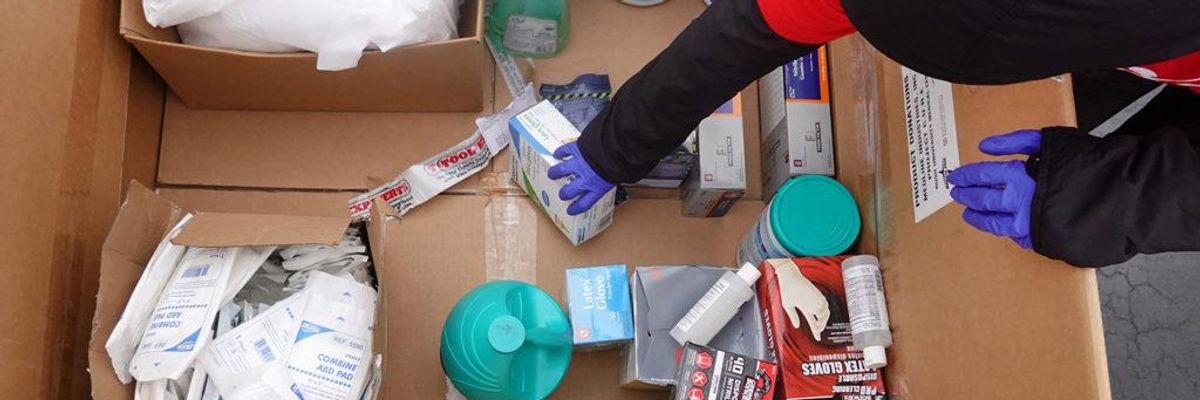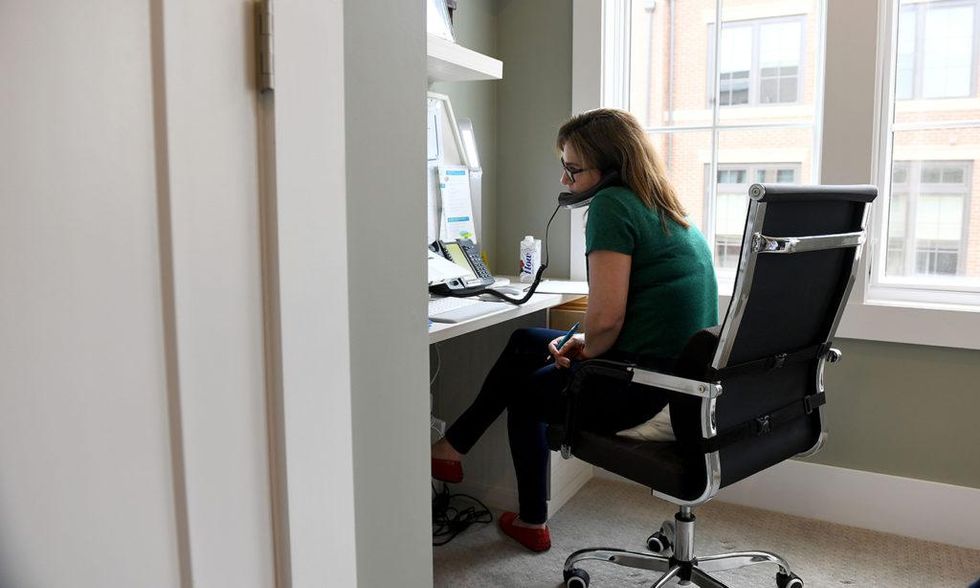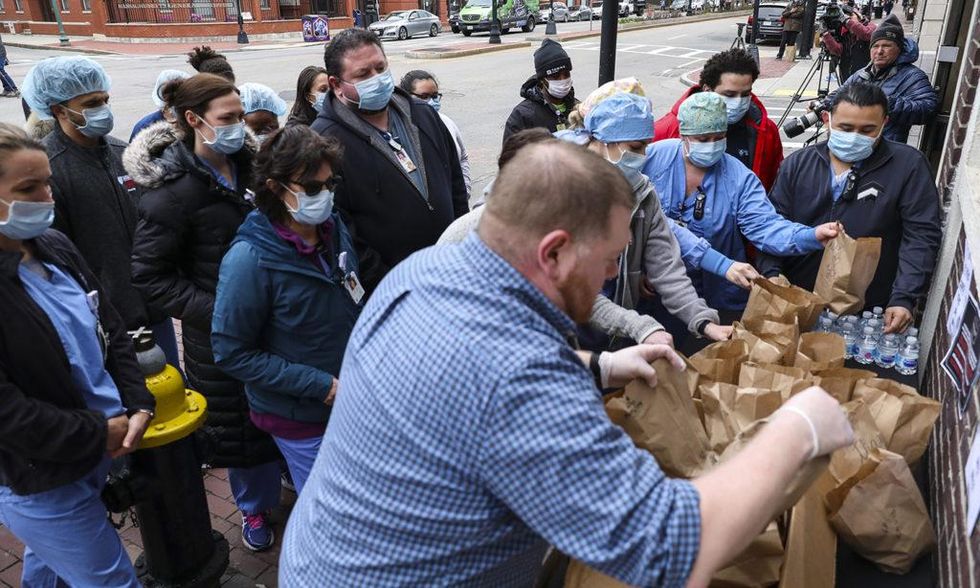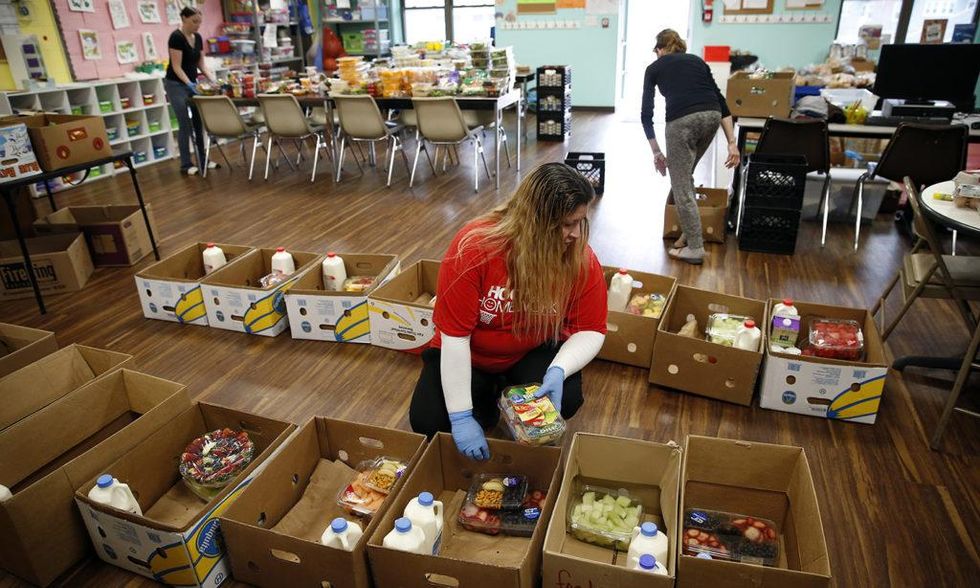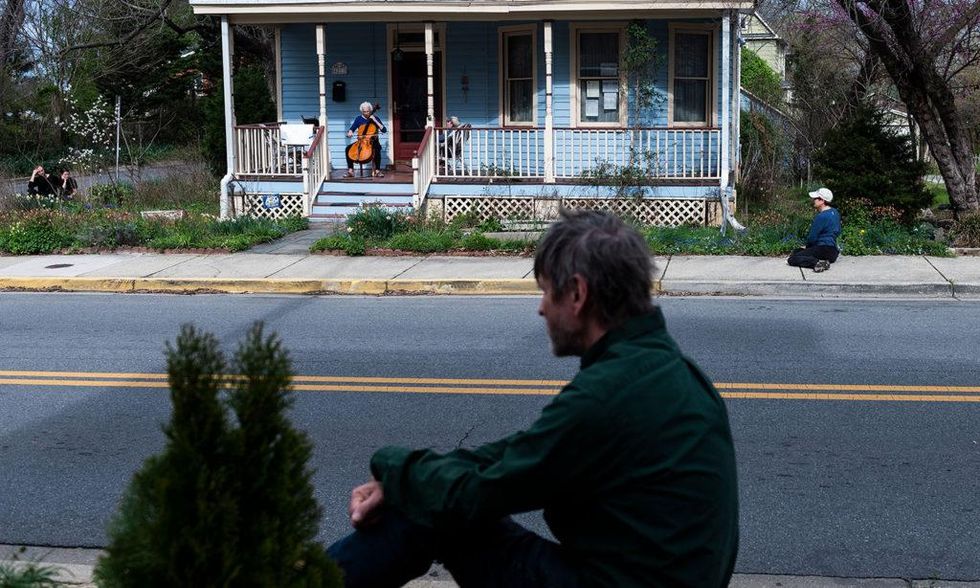When I was a boy and I would see scary things in the news, my mother would say to me, 'Look for the helpers. You will always find people who are helping.'"-Fred Rogers
A lot of scary things are on the news lately, from the continued spread of the coronavirus into every crevice of the globe to the mental and emotional toll that fighting the virus is taking on those of us in self-isolation. In these troubled times, we've seen industries, businesses, and celebrities step up to help out.
Entertainers are streaming live performances, while the tech industry keeps us connected through apps such as Houseparty and Zoom. The fashion industry, and an army of garment industry workers and home sewists, are making masks for frontline medical workers. And from Australia to South Korea, governments are hammering out stimulus packages to stabilize industries and support residents burdened by this pandemic. The United Nations is also working on a plan to aid nations unable to bankroll similar bills.
Of course, none of these is a panacea, especially not for people within already vulnerable communities who were struggling even before the virus hit.
Fortunately, around the country, grassroots initiatives spearheaded by nonprofits, community groups, and individuals are working to fill these gaps. Some are addressing basic, immediate needs such as shelter, food, and replacing lost income, while others are addressing mental health and providing ways to keep spirits up during quaran-times. All of these contributions are meaningful and important, but here are a dozen in North America that we want to amplify.
* More than 3 million Americans have already applied for unemployment because of interrupted work. For those whose paychecks are still coming, Instagrammer Brad Hall has a challenge: Pass the Lettuce. The premise is simple: If you haven't lost income, pledge to share your $1,200 stimulus payment with those in need. To raise awareness of this pay-it-forward pledge, Hall invites people to post a video of themselves taking the pledge and eating a head of lettuce to social media with the hashtag #passthelettuce, and then tag three people, nominating them to do the same. The New York Times has also compiled a list of nonprofits providing health care, food security, and mutual aid services worthy of the donation.
* On a similar note, Hand in Hand, a national network of domestic employers, is encouraging those who hire nannies, housecleaners and home attendants to commit, if they can, to continue paying their workers during the pandemic. So far more than 185 employers have taken the Employer Pledge. Many of these workers are undocumented, don't receive sick leave and will not qualify for most benefits under the federal government's stimulus program. "Our employers are both parents who hire nannies, people who hire cleaners and seniors and people with disability employing attendants and caregivers," Executive Director Stacy Kono says.
At the same time, the National Domestic Workers Alliance wants to raise $4 million through its Coronavirus Care Fund to provide relief to domestic workers across the U.S. who are practicing social distancing by staying home.

* The coronavirus not only threatens physical health, it is also affecting our mental well-being. Infectious outbreaks cause stress, but so does flattening the curve. Social distancing and self-isolation can trigger feelings of disconnectedness and depression, especially for those who already struggle with mental health. In New York, more than 6,000 counselors are donating time and expertise to help people through an Emotional Support Hotline. (Note that professional therapists can only offer treatment for residents of the state they are registered in.) Though not a substitute for professional counseling, techniques such as physical exercise, meditation, and mindfully consuming news can also offer relief. Mind Control: Managing Your Mental Health During Covid-19 from Coursera is another option for improving mental health during this challenging time.
* Few industries have been as affected by the measures to curb COVID-19 as hospitality, where nearly 90% of workers have no paid sick days or health insurance. The Seattle Hospitality Emergency Fund is raising $250,000 to help offset wage disruption within the industry, particularly for undocumented workers. The GoFundMe campaign is spearheaded by former restaurant worker and nonprofit founder, Jessica Tousignant.
Children of Restaurant Employees is a national nonprofit that is also helping vulnerable families in the food and beverage industry. In addition to their ongoing work, they have established a resource page and are giving financial support to families with someone diagnosed with COVID-19 at home.

* The financial and social insecurities of sex work means that many employed in this sector are disproportionately affected by the current loss of work. PACE Society has created a Sex Worker Relief Fund to give money to sex workers in metro Vancouver "based on need and social marginalization." The Bay Area Workers Support is providing similar support in California.
* LGBTQ people are particularly vulnerable when it comes to COVID-19. The health care system marginalizes this community, which also reports higher rates of chronic stress, cancer, and HIV than other groups. The Human Rights Campaign as well as a number of other advocacy organizations across the country have created resource lists and tool kits to inform and support those in the community.
* Many construction workers are currently faced with a difficult dilemma: stop work and lose wages or continue to report to job sites where social distancing and hand-washing are practically impossible. Moreover, because the coronavirus is so new, there is no established protocol for alerting authorities about virus-unsafe conditions or securing related hazard pay, according to the industry journal, Construction Dive. In Washington state, Construction Workers United is organizing support for construction workers who, despite the governor's ban on nonessential infrastructure projects, are being asked to work without hazard pay.
* Even before coronavirus, the Appalachian Region was struggling with a poverty rate of more than 15%. Stay Together Appalachian Youth Network and the Kentucky Student Environmental Coalition, two youth-driven grassroots groups, have joined forces to raise financial support for people under 30 within their combined service area, covering Kentucky and parts of Alabama, North Carolina, Tennessee, Virginia, and West Virginia.
"The needs we are seeing most right now are mostly around needing money for rent and bills," coordinator Lou Murrey says in an email. "Many of these young folks are caring for other family members and have lost their job, they are anxious about what they are going to do to take care of their people." You can apply for $200 in direct aid or donate on the project website.
* More than 650,000 people in Maryland live with food insecurity--and that's in the best of times. Coronavirus has exacerbated their need and that of the nearly 400,000 public school students across the state who receive free and reduced lunches. Western Maryland Meal Response Team, created by resident Lisa Wolford, provides as many meals for families as food donations from partners such as the West Maryland Food Bank and financial contributions via PayPal will allow.
"This started the day the first school closures were announced as a way to feed children who'd miss a meal at lunchtime," Wolford says in a private message. "[It] has exploded into a community-wide emergency food pantry. In fifteen days, we've fed 225 families."

* Unfortunately, many workers across creative industries are still struggling to cope with the loss of work. With them in mind, Sweet Relief is its upping financial aid to musicians affected by shuttered entertainment venues. And in the Bay Area, nightlife workers can apply for aid through the SF Bay Area Queer Nightlife Fund. Americans for the Arts has compiled a list of more than 30 relief funds for artists.
* Arts organizations around the country have found creative ways to keep patrons engaged while they shelter in place. North Dakota Museum of Art, for example, just dropped an open call for entries for an upcoming experimental exhibition: "Art in Isolation." Regional residents of all ages and artistic ability are invited to email works created during self-isolation. The works will later be printed out and used to create a single gallery-sized art installation.
The Getty Museum in Los Angeles is also involving art lovers in a crowdsourced creative project: "We challenge you to recreate a work of art with objects (and people) in your home," they tweeted. Those who prefer looking at art over making it can virtually tour the world-class collections of museums like the Louvre, the Guggenheim, and the National Gallery of Art.

Meanwhile, orchestras and operas around the world are streaming performances online. Look to social media for classes on everything from ballet to drawing comics. The Gibney Studio in New York is continuing to pay teachers' regular salaries while offering Zoom classes in ballet, contemporary dance, stretching, and even vogueing, all on a sliding scale.
* David Markovich, founder and CEO of Geniuses, has created CoronaHub, a global online Slack chat community where people could connect in real-time, just like they would at the office. In its first three days, it added more than 700 members, from Serbia to Los Angeles. People are offering jobs and a range of services. One member is offering her app for volunteer management to deal with the outbreak.
